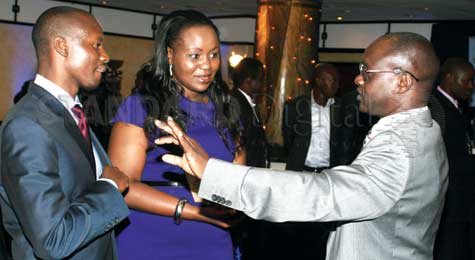×
The Standard e-Paper
Home To Bold Columnists
 |
| Standard Group CEO Sam Shollei (R), Director Francis Munywoki and Royal Media’s Carol Wanyama. [PHOTO:ONYANGO/STANDARD] |
By Felix Olick
In a break with tradition, all aspirants for the presidency will be invited to share one stage in three live television debates broadcast nationally by all local electronic media.